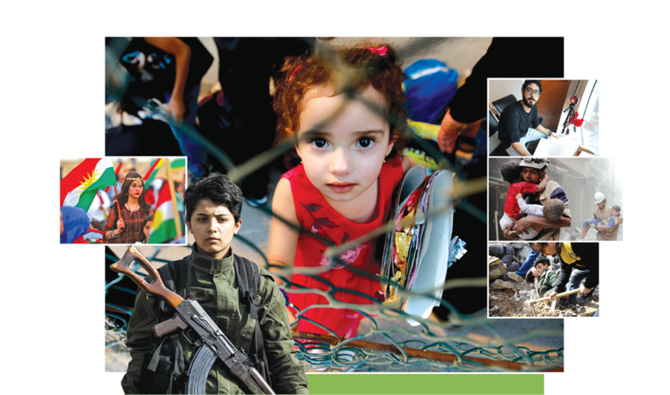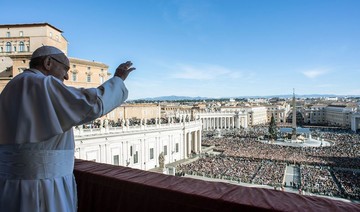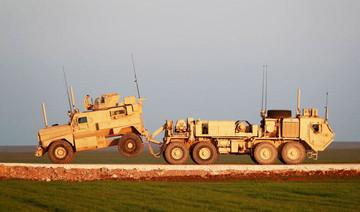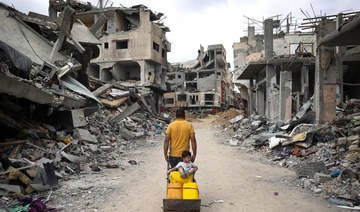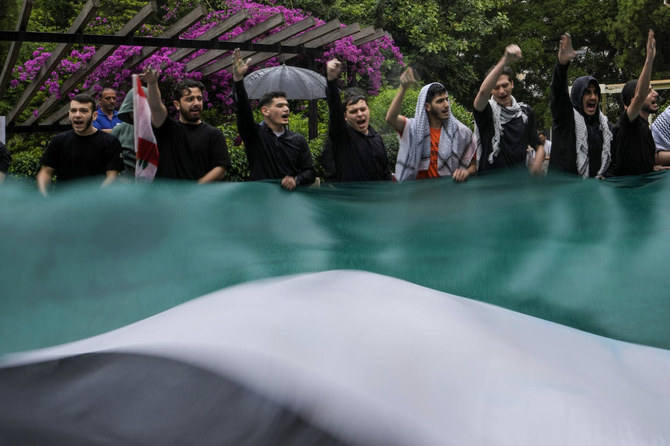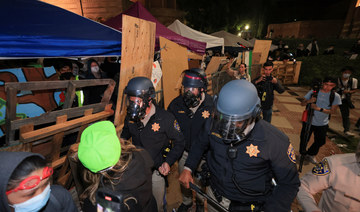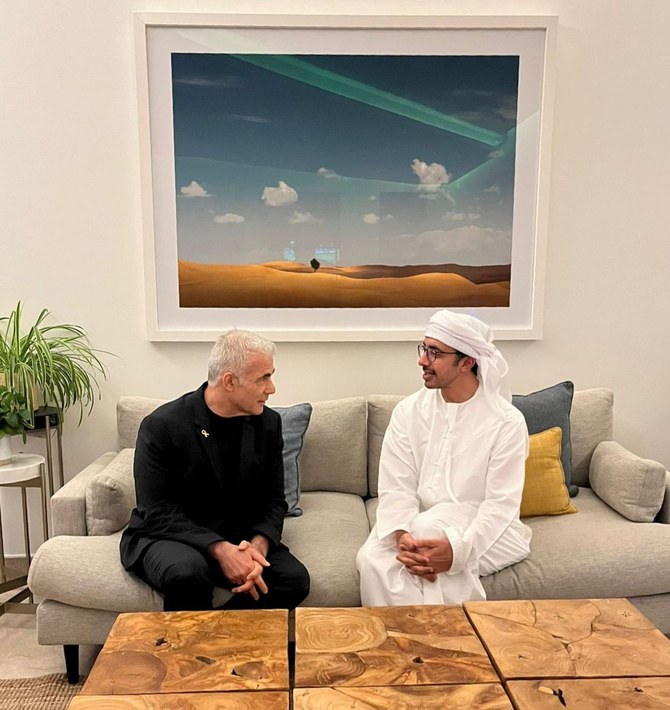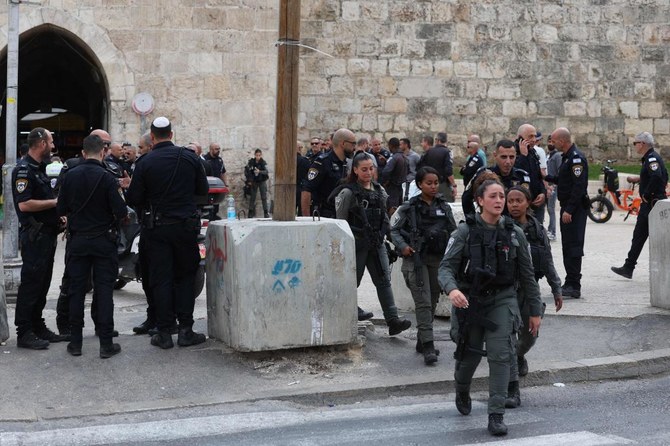LONDON: With the media’s attention diverted toward turmoil and conflicts in other parts of the Middle East, it may seem as if the war in Syria has ended, but it certainly has not. It has been almost eight years since the war erupted, and even though 2018 has seen major events unfold on the military and security levels, much has remained unchanged for Syrians.
The carnage was unrelenting this year. The death toll reached 36,135 between January and November, of which 5,773 were civilians, according to the Syrian Observatory for Human Rights. The highest monthly civilian death toll was in March (1,460) followed by February (1,391).
There was a plethora of events on the military and security levels. On Jan. 20, Turkey began a major military operation against Kurdish fighters in Syria’s northern enclave of Afrin, which led to widespread human rights violations.
By March, Turkish-led forces had captured Afrin, and according to Reuters, more than 200,000 people had fled. In a resettlement scheme, Turkey moved allied Arab fighters and refugees from southern Syria into empty homes that belonged to displaced locals.
Another major event was the full recapture of the Damascus countryside by Syrian regime troops, and the departure of Daesh militants and their families from the suburbs, making the capital more secure.
On April 15, the regime announced that all rebel forces had left Eastern Ghouta after a searing two-month offensive. And on May 21, it declared the full recapture of the Yarmouk Palestinian refugee camp and Al-Hajar Al-Aswad district, which is adjacent to the camp.
On April 14, the US, UK and France launched more than 100 missiles targeting three alleged regime chemical weapons facilities. US President Donald Trump said the move was in response to a regime chemical attack against Douma, which was the last rebel-held town in Eastern Ghouta.
Russia, China and Iran condemned the strikes. Russian President Vladimir Putin called them “an act of aggression” that had a “destructive influence on the entire system of international relations.”
The Trump administration announced on Dec. 19 that with Daesh defeated, US troops are withdrawing from Syria. Russian Foreign Ministry spokeswoman Maria Zakharova said the decision could result in “genuine, real prospects for a political settlement” in Syria.
Armand V. Cucciniello III, an adviser to the US military and a former American diplomat, told Arab News: “Trump’s decision to pull American troops out was based on the fact that unless Western powers are going to intervene in Syria full-force and overthrow (President Bashar) Assad — whereby we’d likely see a repetition of what has happened in Iraq — the degradation of ISIS (Daesh) this year is enough of a reason to withdraw.”
Cucciniello III added: “The Middle East needs to be stabilized by local forces. The US can’t play policeman forever — or it can, but it will be bogged down forever. Iran wants to see to it that the US and its allies play whack-a-mole forever, keeping them entrenched.”
This year has also seen the return of many refugees and displaced people to their homes in Syria. More than 5,000 refugees have gone home from Lebanon since January as part of a deal between Damascus and Beirut, which wants the 1.5 million Syrian refugees in Lebanon to leave. And more than 2,000 refugees have returned from Jordan to Syria after the reopening of the Nasib crossing in October.
But in August, the UN High Commissioner for Refugees (UNHCR) said it could not yet facilitate repatriations because conditions were not safe. Cucciniello III said: “We’ll have to wait and see if the actors remaining in Syria after an American pullout can stabilize the country enough whereby IDPs (internally displaced persons) and refugees feel safe enough to return home.”
Dr. Humam Al-Jazaeri, a Syrian economist and financial advisor, told Arab News: “Hope for returning displaced people and refugees will be attached intimately to the international community’s approach to the Syrian crisis. There’s a growing need to invest in local economic capability and community empowerment.”
He added: “The Syrian economy represents a high potential ‘test bed’ for post-crisis development initiatives. Reintegrating displaced people back to their areas and regions can be facilitated at low cost. The cost of a refugee living in Europe much exceeds the cost of a returning refugee reintegrating through reactivated farming practices or other professional activities.”

He said: “This is unlike other war-torn countries such as Afghanistan, Somalia or even Iraq, where local conditions place structural obstructing forces against reintegration.” But “under the current unilateral sanctions imposed on the Syrian economy, institutions and individuals, it’s both difficult and expensive to do business in and with Syria.”
Though there have been many changes on the military and security levels, the economy has not improved, and nor have people’s livelihoods and lives significantly. “With no more mortar shells fired randomly by rebel groups at the city of Aleppo, the security situation has significantly improved, but crimes like killing and theft continue to threaten the security of civilians,” Nariman S., an Aleppo-based pharmacist, told Arab News.
“Prices of basic needs continue to rise in a manner that’s not proportionate to per-capita income. Unemployment rates haven’t changed much since the start of the war. Job opportunities are very limited and don’t provide security, with many companies laying off employees and reducing headcounts.”
Despite that, services, such as water and power, have improved in Aleppo by 20 percent and goods have become available, she said.
The security situation may have significantly improved in Damascus, but job security, infrastructure, livelihoods and prices of basic needs remain a challenge for most people. “When the exchange price of the US dollar was on the rise, shops claimed they raised their prices for this reason, but now it has dropped and the prices continue to rise every month,” Eyad, a Damascus-based accountant, told Arab News.
Um Jamal, a Palestinian-Syrian mother of three who works as a cleaner, was told that people could return to Yarmouk camp and that the regime would give them financial compensation to rebuild their homes, but when she learned the truth she was overwhelmed.
“Our building was turned into ashes and its location is still full of rubble,” she told Arab News. “When I asked the district’s officials about compensation, they said none was available and we ought to clean up the rubble at our own expense. This would cost my family… an amount we don’t have as we struggle to make ends meet every month.”
Despite everything, people are positive about the prospects for peace and prosperity in 2019. “For the first time in seven years, people in Damascus will be able to celebrate New Year’s Eve without worrying about being bombarded by rebels,” said Syrian-Canadian analyst Camille Otrakji.
“If the US completes its recently announced full troop withdrawal, it would be another significant step toward the inevitable reunification of Syrian territory. Reuniting the people, though, remains a formidable challenge for Syria and for many other nations,” he added.
“The US and its allies are tightening their sanctions on Syria in hopes of obstructing any serious efforts to rebuild the country. The objective of the harsh sanctions is to pressure Syria’s leadership into accepting political reforms that will somehow transform Syria into a Jeffersonian democracy.”
Otrakji said 2019 will be defined by uncertainty, and in 2018, “regional alliances have been confusing to those who are used to the old Cold War between a clearly defined Western camp and an Eastern camp.”
He added: “Today, one finds Turkey remaining in NATO but acting more as a Russian partner. America’s closest Arab ally Saudi Arabia is publicly protesting American and Canadian intervention in its internal affairs, while expressing admiration for Russia’s non-interventionist foreign policy. Iran is protecting the Syrian government while coordinating closely with the latter’s top enemy, (Turkish) President (Recep Tayyip) Erdogan.”
Cucciniello III said: “Either ISIS will re-emerge and expand or, more broadly, jihadi forces will reinvent themselves into something else in 2019. The balance of power will likely tilt toward Tehran.”
He added: “But this is part of the paradox in which the US and its allies find themselves: ‘Can we ever get out of this mess?’ No success in Iraq, Afghanistan or Syria has ever been good enough to leave on a good note. So do we continue to stay in perpetuity, or pull out and let things play out more locally?”
Al-Jazaeri said: “Syria’s economy will rely heavily on Syrian private financing for at least the next five years, before other serious sources of financing start to take shape. It’s important for the government to seriously consider gradual but steady deregulation in all sectors, most importantly in the banking and financial sector. There’s no risk today of the money being siphoned out of the country. Instead, there’s potential for Syrians’ money to flow in.”


